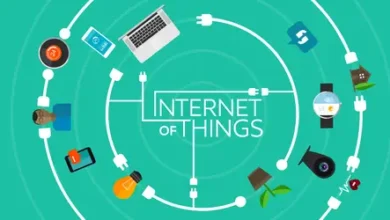Top Tech Companies: The Giants Leading the AI Charge

AI is a reality that’s transforming industries and everyday life. Leading this charge are some of the world’s biggest tech companies. They bring their unique strengths and strategies to the table. Tech giants, like Google, Amazon, Microsoft, Apple, Meta are all shaping the AI landscape in their unique ways, sometimes also cooperating to find better solutions. Here is what the Big Five are currently working on.
Top Tech Companies
Google, under its parent company Alphabet, is a powerhouse in AI research and development. Famous for its search engine, Google has leveraged AI to enhance its core services. For instance, improving search algorithms and personalizing user experiences. One of its most notable AI projects is DeepMind, a subsidiary focused on advanced AI research. Google’s AI efforts extend to healthcare through DeepMind’s work on medical imaging and diagnostics. Additionally, Google Assistant, the company’s AI-powered virtual assistant, is a testament to its commitment to integrating AI into everyday life. Google’s approach to AI is characterized by its emphasis on research and practical applications. This makes it a leader in both innovation and implementation.
Amazon
Amazon’s AI prowess is most visible in its e-commerce and cloud computing services. Amazon Web Services (AWS) offers a range of AI and machine learning tools that businesses can use to build their own AI applications. This has made AWS a go-to platform for companies looking to power AI without building infrastructure from scratch. Amazon’s AI capabilities are also evident in its recommendation algorithms, which suggest products based on user behaviour, and in Alexa, its voice-activated virtual assistant. Alexa has become a central feature in many smart homes, demonstrating Amazon’s ability to integrate AI into consumer products seamlessly.
Microsoft
Microsoft has positioned itself as a leader in AI through its Azure cloud platform and its investments in AI research. Azure offers a comprehensive suite of AI tools and services, making it a strong competitor to AWS. Microsoft has also made significant investments in OpenAI, the organisation behind the GPT series of language models, including GPT-4. Microsoft’s AI initiatives are integrated into its products like Office 365, where AI features help users with tasks such as writing and data analysis. Cortana, Microsoft’s virtual assistant, although less prominent than Alexa or Google Assistant, shows the company’s efforts in AI-driven personal assistance. Microsoft’s strategy focuses on integrating AI into its existing products and services, enhancing their functionality and user experience.
Apple
Apple’s approach to AI is more subtle but equally impactful. Known for its emphasis on privacy and user experience, Apple integrates AI into its devices to enhance functionality while maintaining user trust. Siri, Apple’s virtual assistant, was one of the first AI assistants to hit the market, setting the stage for future developments. Apple uses AI in features like Face ID, which relies on facial recognition to unlock devices. and in its camera systems to improve photo quality. The company’s acquisition of AI startups has bolstered its capabilities. This allows it to integrate advanced AI features into its hardware and software seamlessly.
Meta, formerly Facebook, has heavily invested in AI to enhance its social media platforms and develop modern technologies. AI powers Facebook’s content recommendation algorithms, helping to personalise user feeds and improve ad targeting. Meta is also venturing into the metaverse, a virtual reality space where users can interact in immersive environments. AI plays a crucial role in creating realistic avatars and interactive experiences in the metaverse. Meta’s focus on social interaction and virtual reality sets it apart from other tech companies, highlighting its unique approach to AI.
Who else is in the game?
Nvidia, known for its graphics processing units (GPUs), has recently become a key player in the AI industry. GPUs are essential for training AI models, and Nvidia’s hardware is widely used in AI research and development. The company’s AI platform, Nvidia AI, offers tools and frameworks for building AI applications. This makes it a critical resource for developers. Nvidia’s AI technology is used in various fields, from autonomous vehicles to healthcare. For example, Nvidia’s AI-powered systems help in medical imaging and diagnostics, providing faster and more accurate results. Nvidia’s strength lies in its hardware and software solutions, which are foundational to many AI advancements.
One of the most notable examples of Nvidia’s impact on AI is its role in training large language models like OpenAI’s GPT-4. These models require immense computational power, and Nvidia’s GPUs are the preferred choice for such tasks. The training of GPT-4 involved thousands of Nvidia GPUs working in tandem. It displays the company’s critical role in advancing AI research.
Each of these tech companies brings something unique to the AI landscape. Together, these companies are driving the AI revolution, each contributing to the technology’s growth and integration into our daily lives. As AI continues to evolve, the innovations from these Tech Giants will undoubtedly shape the future. This will create an exciting time to witness the advancements in artificial intelligence.





